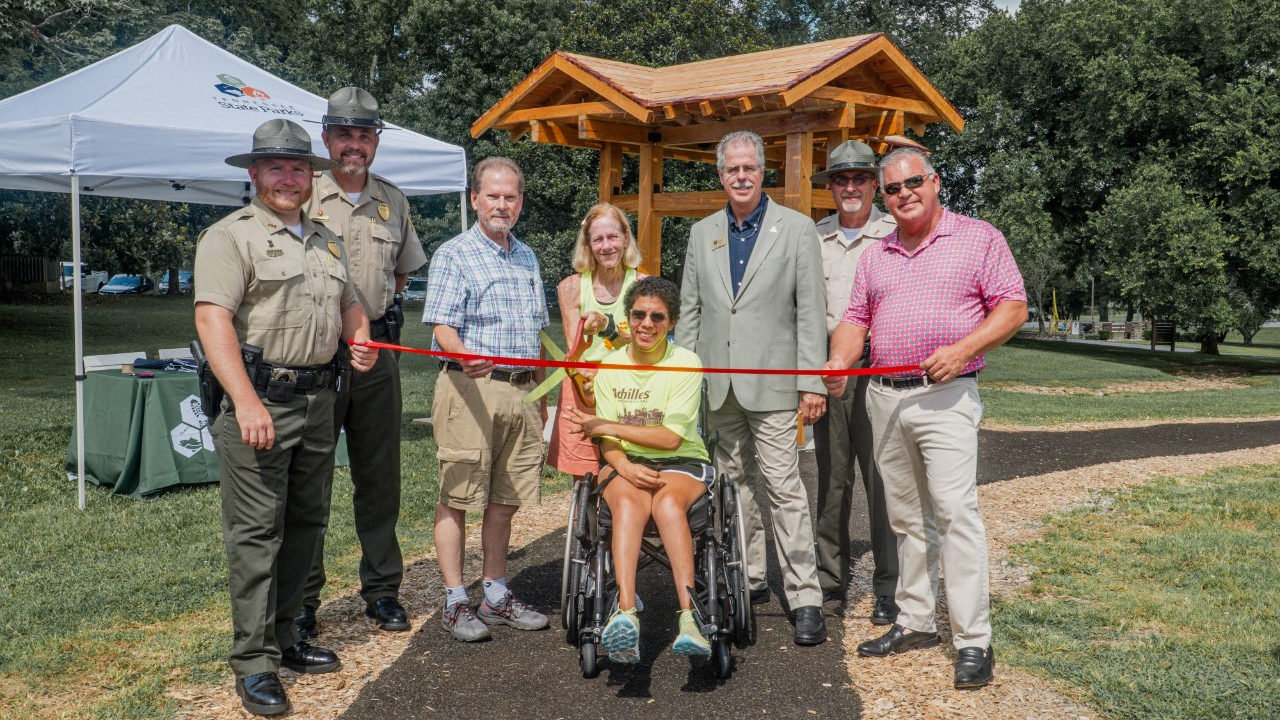Tennessee State Parks officials have officially opened a new universally accessible greenway at Henry Horton State Park, reinforcing the state’s reputation as a national leader in park accessibility.
According to an article by the Department of Environment and Conservation, the 1.5-mile multi-use trail offers scenic views of the park and access to the Duck River, while connecting visitors to pollinator gardens, native grass fields, the gravesite of former Governor Henry Horton, and a historic rock wall original to the property.
The project was completed over several years and funded through a combination of grants from the Tire Environmental Act Program and the Recreation Trails Program, along with in-kind labor from park staff.
The total investment reached $360,000. The trail’s surface is made from porous-pave material that includes 125,000 pounds of crumb rubber — the equivalent of 6,220 recycled passenger tires — all sourced from within Tennessee. The surface allows for better drainage and durability, particularly beneficial for accessibility.
In addition to the trail dedication, officials thanked General Motors for a $20,000 grant provided to the Friends of Henry Horton organization.
The funding supported the reconstruction of a replica millwheel now displayed outside the park’s Visitor Center.
The millwheel, originally housed at the Tennessee State Museum, reflects the historical presence of mills along the Duck River during the 19th century.
The grant also funded interpretive signage and historical research related to the Wilhoite Mill, which operated near the area for nearly a century.
The dedication also introduced the park’s new manager, Shaun Rainone, and served as a kickoff for the Duck River Outdoor Expo — a weekend-long event focused on conservation and education efforts tied to the Duck River, one of North America’s most biodiverse rivers.
Constructed in the 1960s on the estate of former Governor Henry Horton, the park continues to expand its amenities while honoring the natural and historical significance of the region.
The new greenway enhances outdoor recreation access for people of all abilities, offering a model of inclusivity that supports tourism, conservation education, and community engagement.
Featured image by Department of Environment and Conservation via www.tn.gov/environment


